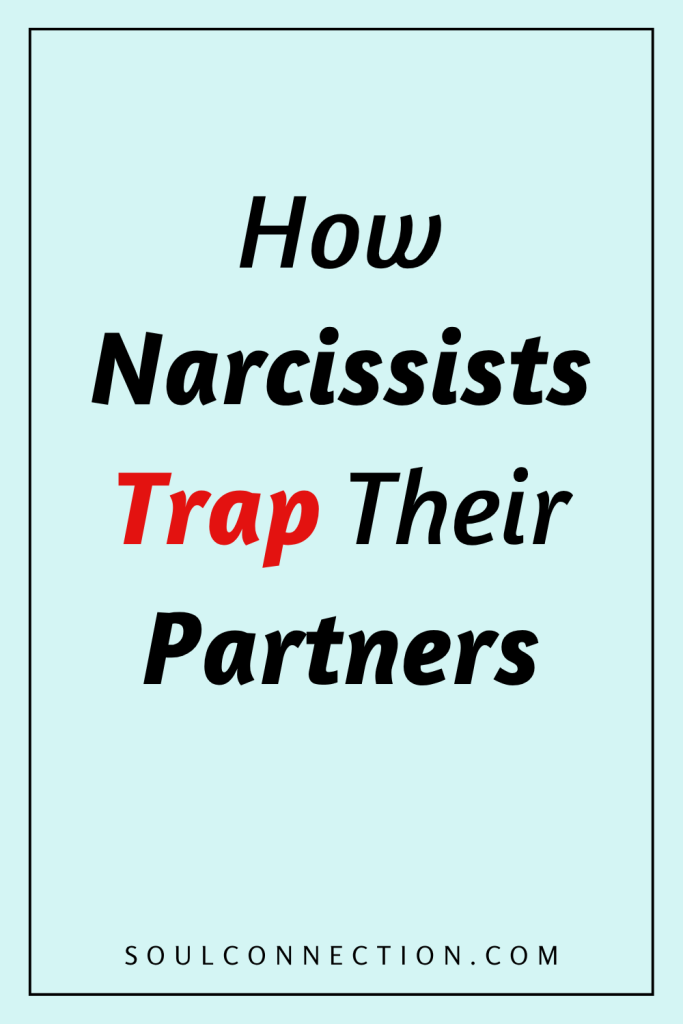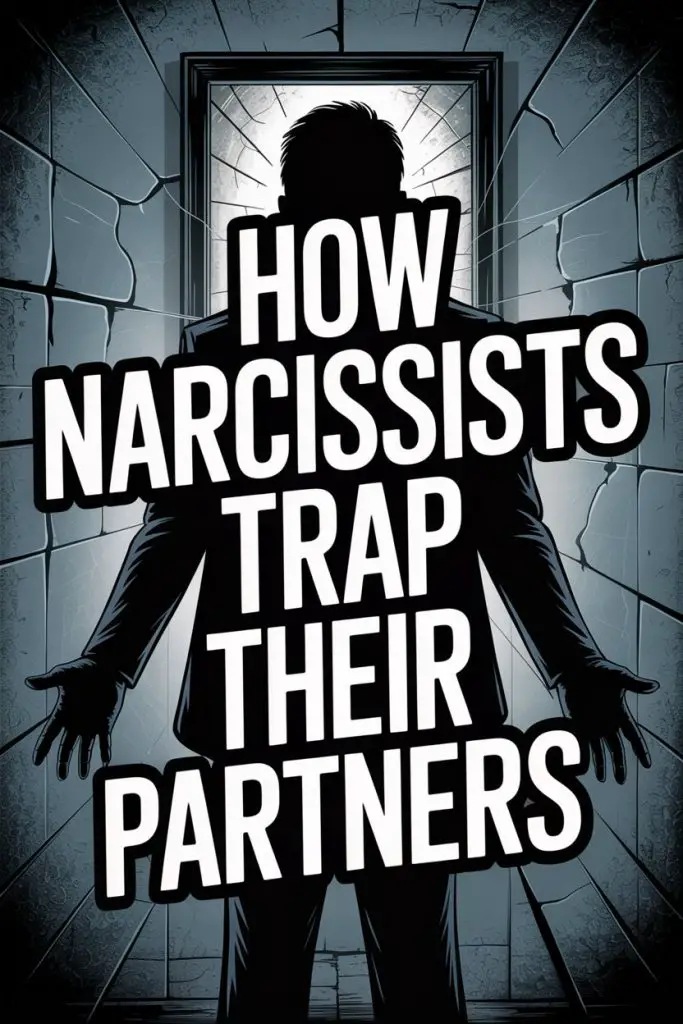Narcissists make Houdini look like a rookie. Their greatest trick isn’t escaping; it’s pulling their partners into a psychological maze and then hiding the exit.
If you’ve ever felt like you’re in a relationship where the walls keep moving and the rules change every five minutes, you might be dating a narcissist.
Grab a cuppa and settle in, because we’re about to pull back the curtain on how these relationship magicians operate.
The Love Bombing Fireworks Display
Every narcissist starts with a bang. Think grand gestures, whirlwind romance, declarations of undying love before you’ve finished your second latte together. It’s a confetti cannon of affection.
The love bombing phase is designed to leave you breathless—in a “is this real life or a rom-com marathon” sort of way. Compliments fly fast, gifts appear unannounced, and the texts never stop.
If you’re not careful, you’ll be convinced you’ve found The One.
But here’s the catch: it’s bait, not genuine intimacy. Narcissists mirror your dreams and values, reflecting exactly what you want to see. It’s all about drawing you in, not building something real.
The “Soulmate” Illusion
Every great trap needs a shiny lure. Enter the soulmate narrative.
Narcissists are masters at convincing you that you’re uniquely matched—cosmic twins, destined partners, the peanut butter to their jelly.
They’ll finish your sentences, recall tiny details from your earliest conversations, and create the sense that only they “get” you.
The result? You start thinking this relationship is once-in-a-lifetime stuff. Who could walk away from fate? That’s the point.
Idealization (AKA: Putting You on a Pedestal)
During the Idealization Phase, you’re not just loved—you’re worshipped. You’re the cleverest, kindest, most beautiful person in every room (and possibly in recorded history, if their gushing is to be believed).
This isn’t just flattery; it’s a strategic move. If you’ve never felt so adored, you’re less likely to question their intentions.
When things inevitably go sideways, you’ll chase that high, just like an addict remembers their very first taste.
The Mask Slips: Devaluation Begins
The magic show can’t last forever. Once you’re fully invested, narcissists shift gears.
Suddenly, those endless compliments dry up. Your little quirks—once “adorable”—now annoy them. They might mock your interests, question your intelligence, or withdraw affection. It’s whiplash-inducing.
This isn’t random. The goal is to destabilize you, making you crave the approval you got in the honeymoon phase. You start to wonder what you did wrong, what you can fix, and how to get things “back to normal.”
Spoiler: you can’t, because the rules were never real anyway.
Gaslighting and Twisting Reality
If you’ve ever been told you’re “too sensitive,” “imagining things,” or “overreacting” after expressing reasonable concerns, congratulations: you’ve entered the gaslighting funhouse.
Narcissists are world-class at distorting reality. They’ll rewrite conversations, deny obvious facts, and insist you’re misremembering things. If you start questioning your own memory or sanity, their plan is working perfectly.
This confusion isn’t accidental; it’s designed to make you doubt your perceptions, so you rely on their version of events instead of your own.
Isolating You from Your Support Network
No magician wants an audience that can see through the tricks. That’s why narcissists often work overtime to cut you off from friends, family, and anyone who might offer a reality check.
At first, it might be subtle—complaints that your mate is “bad for you” or that your family “doesn’t understand us.” Before long, you’re skipping gatherings, replying to texts less often, and wondering why your phone is suddenly so quiet.
With your usual lifelines gone, it’s much easier for a narcissist to become the center of your universe—and the only voice you listen to.
Emotional Blackmail and Guilt Tripping
Guilt is the duct tape of narcissistic relationships. If you try to set a boundary, express a need, or—heaven forbid—suggest breaking up, you’re hit with a tidal wave of guilt-laden rhetoric.
They’ll remind you of all they’ve done for you (“After everything I’ve sacrificed!”), hint that you’re selfish, or warn that you’re ruining their life. Bonus points if they mention how nobody else could ever love you like they do.
If you’re the empathetic type, this approach is especially effective. The narcissist knows you’ll be desperate to fix things—even if you’re not sure what’s broken.
Playing the Victim Card
Ever met someone who can turn any situation into a tragedy about themselves? Narcissists have mastered the art of victimhood.
If you confront them about their behavior, prepare for waterworks or tales of hardship. Suddenly, they’re the wounded party, and you’re the heartless villain. The goal? To flip the script and distract you from the real issue.
This tactic also keeps you feeling responsible for their happiness—and makes it that much harder to walk away.
Intermittent Reinforcement
This is where things get really diabolical. Just when you’re about to call it quits, the narcissist throws you a crumb—a compliment here, a thoughtful gesture there.
Intermittent reinforcement is the secret sauce behind every addictive relationship. You never know when the niceness will return, so you keep hanging around, hoping for another taste.
It’s a relationship slot machine: just one more pull and maybe, just maybe, you’ll hit the jackpot.
Moving the Goalposts
Raise a concern or express a need, and watch as the narcissist changes the rules.
Today, you’re too clingy. Tomorrow, you’re distant. Wednesday, you’re not supportive enough. Thursday, you’re smothering.
No matter what you do, you’re wrong—but there’s always a hint that you could get it right if only you tried harder.
This keeps you running in circles, fueled by hope and self-doubt, instead of marching out the door.
The Threat of Abandonment (and Sometimes, the Silent Treatment)
Few things unnerve a narcissist’s partner faster than sudden silence or threats to leave.
When you push back, disagree, or simply show a backbone, expect a cold shoulder or threats to end the relationship. The message is clear: fall in line, or lose everything.
For people who crave connection (which, let’s face it, most humans do), this fear is enough to keep them compliant—at least for a while.
Flying Monkeys: Recruiting Others to Their Cause
Narcissists rarely go solo when drama is involved. They’ll often recruit friends, family members, or even your own mates to back them up, painting you as the unreasonable one.
Suddenly, you’re not just fighting one person—you’re battling an entire cast of supporting actors, all echoing the narcissist’s narrative.
This social pressure is designed to keep you from seeking help or speaking out. After all, if everyone else thinks you’re overreacting, maybe you are… right?
Future Faking
Plans for exotic holidays, talks of marriage, promises of a rosy future—narcissists excel at painting a picture of the wonderful life you’ll have together. Just as soon as you jump through a few more hoops, of course.
This promise of “someday” keeps you emotionally invested, even as reality keeps falling short. Every time you think about leaving, the idea of what could be pulls you right back in.
The Smear Campaign
Decide you’ve had enough and start to pull away? Get ready for your own personal PR disaster.
Narcissists often pre-emptively tell friends or family that you’re the unstable or cruel one. By the time you share your side, your reputation is already dinged, and you’re left defending yourself.
It’s a tactic designed to punish you for stepping out of line—and to make sure you think twice before leaving again.
Why It’s So Hard to Walk Away
Anyone on the outside might ask, “If it’s so awful, why don’t they just leave?”
Short answer: the trap is carefully constructed.
By the time someone realizes what’s going on, their self-esteem has taken a battering, their support network’s been eroded, and they’re addicted to hope—the hope that things will go back to the way they were in the beginning.
Narcissists shape a cycle that’s equal parts carrot and stick, with just enough affection to keep you dreaming and just enough cruelty to keep you doubting yourself.
Breaking the Spell
Escaping a narcissist’s grip isn’t about finding the right words or trying harder to please them—it’s about recognizing that the game is rigged.
Start by reconnecting with your own instincts. Journal what’s happening (gaslighting loses its power on paper), reach out to old friends, and talk to a therapist who understands narcissistic abuse.
Set boundaries—real ones, not the ones that move every week.
Don’t waste energy waiting for them to change. The person you fell for was a mask, not a reality. You deserve relationships where love doesn’t come with a side of mind games or a constant state of confusion.
And if you’re reading this thinking “Wow, that’s my life,” give yourself credit for noticing. That’s the first step out of the maze.
Freedom Is Not a Magic Trick
The walls may feel high, but the lock is always on the inside. Trust your gut, lean on people who have your back, and walk—don’t run—towards the kind of love that doesn’t require an escape plan.
And if anyone tries to hand you a bouquet and a red flag at the same time? Politely excuse yourself. Life’s too short for smoke and mirrors.


